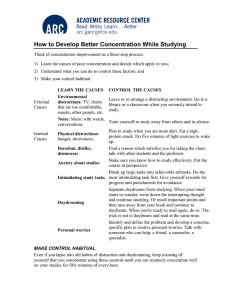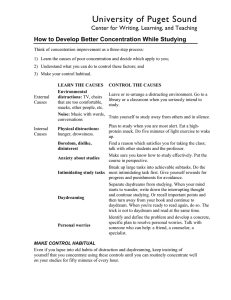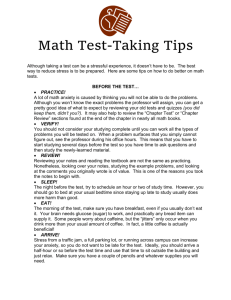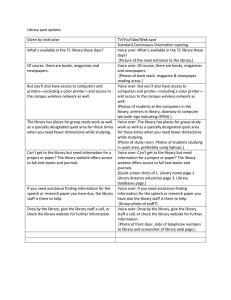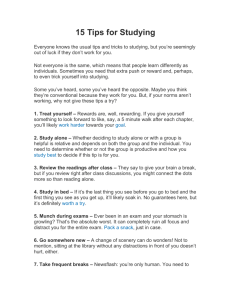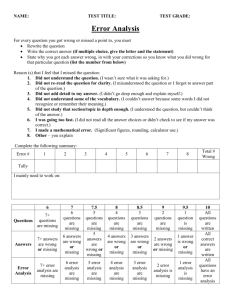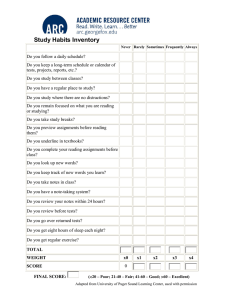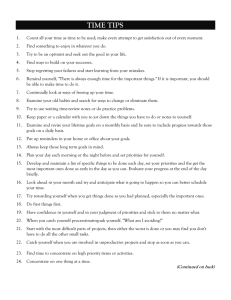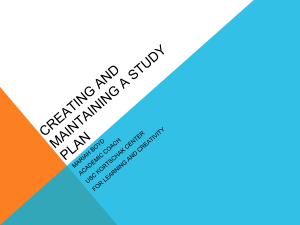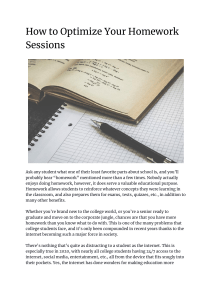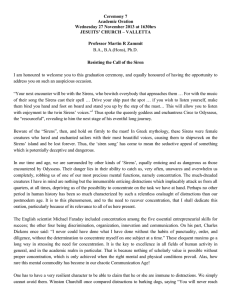Creating an Environment to Help You Concentrate on Your Studies
advertisement
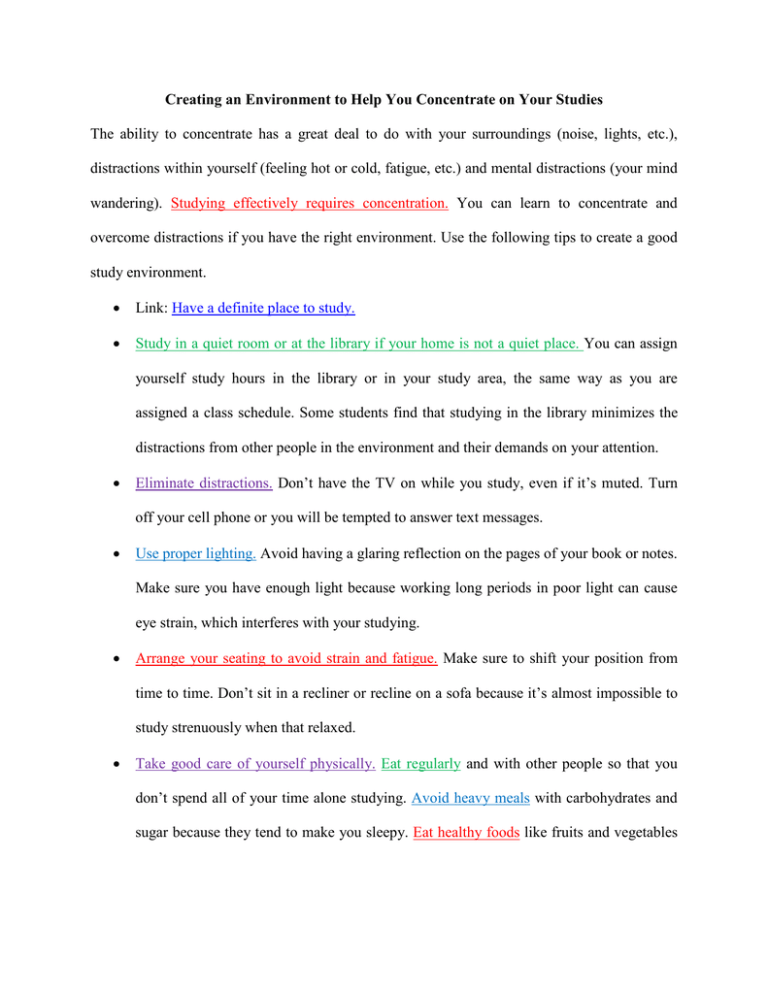
Creating an Environment to Help You Concentrate on Your Studies The ability to concentrate has a great deal to do with your surroundings (noise, lights, etc.), distractions within yourself (feeling hot or cold, fatigue, etc.) and mental distractions (your mind wandering). Studying effectively requires concentration. You can learn to concentrate and overcome distractions if you have the right environment. Use the following tips to create a good study environment. • Link: Have a definite place to study. • Study in a quiet room or at the library if your home is not a quiet place. You can assign yourself study hours in the library or in your study area, the same way as you are assigned a class schedule. Some students find that studying in the library minimizes the distractions from other people in the environment and their demands on your attention. • Eliminate distractions. Don’t have the TV on while you study, even if it’s muted. Turn off your cell phone or you will be tempted to answer text messages. • Use proper lighting. Avoid having a glaring reflection on the pages of your book or notes. Make sure you have enough light because working long periods in poor light can cause eye strain, which interferes with your studying. • Arrange your seating to avoid strain and fatigue. Make sure to shift your position from time to time. Don’t sit in a recliner or recline on a sofa because it’s almost impossible to study strenuously when that relaxed. • Take good care of yourself physically. Eat regularly and with other people so that you don’t spend all of your time alone studying. Avoid heavy meals with carbohydrates and sugar because they tend to make you sleepy. Eat healthy foods like fruits and vegetables that contain water to keep you hydrated and things like peanut butter that contain protein to give you energy. • Get regular exercise and recreation. Break up your study time with anything you enjoy that keeps you moving. For example, go dancing, play tennis, walk your dog, or play ball with your kids. • Get plenty of sleep. If you have trouble falling asleep, do something relaxing right before bed to take your mind off your work and to ease into some calm, quiet time. Author: Shirley “Mandy” Sexton, Ph.D.
